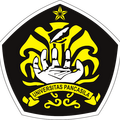Pelatihan Keterampilan Psikologis untuk Pelatih KONI DIY
Abstract
The activity of psychological skills training aims to equip the coaches of KONI DIY with psychological skills, enabling them to fulfill their roles as coaches for athletes. The training participants are 25 KONI DIY coaches, and the training was conducted over one day on July 29, 2023. Data were analyzed through pre-tests and post-tests, with the results indicating an improvement in understanding from a pre-test score of 9.840 to a post-test score of 10.320. However, statistical analysis revealed no significant difference between the two tests, with a Sig. value of 0.179 > 0.05. In contrast, the results of the participants' reaction evaluations showed a positive emotional impact, with average scores ranging from 3.68 to 4.36 in various aspects. These findings emphasize the importance of the training material. To achieve better training outcomes, efforts are needed to make the material more engaging, allocate more time, and provide more in-depth content. In conclusion, this psychological training activity has the potential to enhance communication between coaches and athletes, despite no significant changes in knowledge.
References
Andersen, M. B. (Ed.). (2005). Sport psychology in practice. Human Kinetics.
Andriawan, W., & Irsyada, R. (2022). Pembinaan Prestasi Ikatan Pencak Silat Indonesia (IPSI) di Kabupaten Wonosobo Tahun 2020. Indonesian Journal for Physical Education and Sport, 3(1), 205–213. https://journal.unnes.ac.id/sju/index.php/inapes
Bloom, G. A., Falcao, W., & Caron, J. (2014). Coaching high performance athletes: Implications for coach training. In Positive Human Functioning form a Multidimensional Perspective (p. chapter 6). https://www.researchgate.net/publication/262413773_Coaching_high_performance_athletes_Implications_for_coach_training
Blumenstein, B., & Orbach, I. (2018). Periodization of psychological preparation within the training process. International Journal of Sport and Exercise Psychology.
Dimyati, Herwin, & Hastuti, T. A. (2013). Karakteristik Psikologis Atlet Di Pusat Pendidikan Dan Latihan Pelajar (PPLP). Jurnal Psikologi, 40(2), 143–158. https://doi.org/10.22146/JPSI.6973
Foster, D., Maynard, I., Butt, J., & Hays, K. 2016). Delivery of psychological skills training to youngsters. Journal of Applied Sport Psychology, 28, 62-77. doi:10.1080/10413200.2015.1063097
Gabel, D. L. (1994). Handbook of research on science teaching and learning. Macmillan
Henriksen, K., Larsen, C. H., Storm, L. K., & Ryom, K. (2014). Sport psychology nterventions with young athletes: The perspectiveof the sport psychology practitioner. Journal of Clinical Sport Psychology, 8, 245-260. doi:10.1123/jcsp.2014-0033
Humas Provinsi Kalimantan Timur. (2014). Pembinaan Olahraga Harus Dimulai Sejak Usia Dini. Kaltimprov.Go.Id. https://www.kaltimprov.go.id/berita/pembinaan-olahraga-harus-dimulai-sejak-usia-dini
Morais, J. E., Marinho, D. A., Castro, F. A. D. S., & Barbosa, T. M. (2021). Editorial: Coaches’ Role in Youth Sports Performance: Early Specialization Versus Long-Term Development. In Frontiers in Psychology (Vol. 12, pp. 1–2). Frontiers Media S.A. https://doi.org/10.3389/fpsyg.2021.774944
Mujika, I., Halson, S., Burke, L. M., Balagué, G.,
& Farrow, D. (2018). An integrated, multifactorial Approach to periodization for optimal performance in individual and team sports. International Journal of Sports Physiology and Performance, 13 (5), 538-561.
Nasution, H. A., & Nasution, F. A. (2020). Pengembangan Teknik dan Instrumen Asesmen Aspek Pengetahuan Berbasis Teknologi. Tadbir: Jurnal Manajemen Pendidikan Islam, 8(2), 106–116. https://doi.org/10.30603/tjmpi.v8i2.1306
Prawiyogi, A. G., Sadiah, T. L., Purwanugraha, A., & Elisa, P. N. (2021). Penggunaan Media Big Book untuk Menumbuhkan Minat Membaca di Sekolah Dasar. Jurnal Basicedu, 5(1), 446–452. https://doi.org/10.31004/basicedu.v5i1.787
Rofi’ah, U. A., & Fatonah, S. (2021). Asesmen Perkembangan Anak Usia 4-5 Tahun pada Masa Covid-19. Yaa Bunayya : Jurnal Pendidikan Anak Usia Dini, 5(2), 31–56. https://jurnal.umj.ac.id/index.php/YaaBunayya/article/view/8574
Salabi, M., & Hasanuddin, I. (2022). Managemen Program Pelatihan Atlet Pencak Silat di Masa Pandemi Covid-19. Gelora: Jurnal Pendidikan Olahraga Dan Kesehatan IKIP Mataram, 9(1), 11–26.
Saputra, B., Armariena, D. N., & Iswana, B. (2021). Survei Pembinaan Prestasi Olahraga Sepakbola Atlet Pplpd Musi Banyuasin. Jambura Journal of Sports Coaching, 3(1), 12–22.
Tamsuri, A. (2022). Literatur Review Penggunaan Metode Kirkpatrick untuk Evaluasi Pelatihan di Indonesia. Jurnal Inovasi Penelitian, 2(8), 2723–2734. https://stp-mataram.e-journal.id/JIP/article/view/1154/879
Tenenbaum, G & Eklund, R. C. (2007). Handbook of Sport Psychology. Third Edition. John Wiley & Sons. Inc.
Weinberg, R., & Gould, D. (2015). Foundations of sport and exercise psychology, 5th. edition, Human Kinetics.









